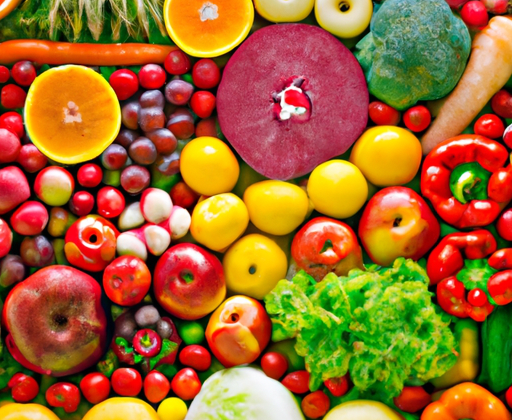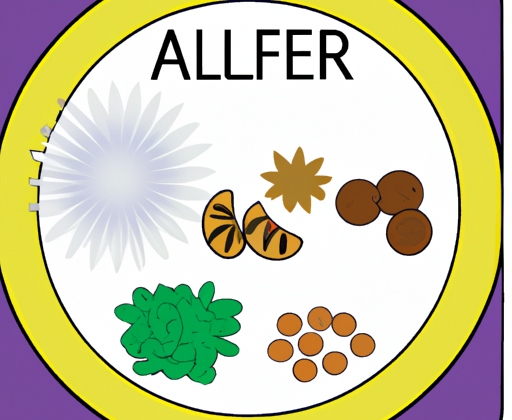Welcome to My Blog About Food Allergies, Y’all!
Hey there, folks! I’m here to share some knowledge about food allergies, which can be a real pain in the you-know-what. Basically, a food allergy is when your body has an adverse reaction to something you’ve eaten. It’s not the same as a food intolerance, which isn’t life-threatening. But a food allergy can be serious business, so it’s important to be aware of the symptoms and how to deal with them.
Common Symptoms of Food Allergies: My Personal Experience
As someone who has dealt with food allergies my whole life, I can tell you firsthand that the symptoms can vary widely from person to person. However, there are a few common symptoms that many people with food allergies experience.
Firstly, skin reactions are a frequent symptom of food allergies. This can include hives, rashes, and itching, as well as swelling of the lips, tongue, or throat. These skin reactions can start within minutes of eating a problem food, or they may take a few hours to appear.
Secondly, digestive problems often accompany food allergies. Symptoms can include nausea, vomiting, diarrhea, or abdominal pain. These symptoms can also start soon after eating, or they may take a few hours to appear.
Finally, in severe cases, food allergies can cause anaphylaxis, a life-threatening allergic reaction. Symptoms of anaphylaxis can include difficulty breathing, low blood pressure, and loss of consciousness. If you suspect someone is experiencing anaphylaxis, call 911 immediately.
Diagnosing a Food Allergy
So you suspect that you might have a food allergy, but how can you be sure? The only way to know for sure if you have a food allergy is to get tested by a doctor. Self-diagnosing can be dangerous because some reactions can be life-threatening, and the symptoms of an allergy can often be mistaken for other conditions, like a stomach virus or food intolerance.

When you visit your doctor, they will ask you about your symptoms and any triggers you may have noticed. They might also order a skin test or a blood test to determine if you have an allergy to a specific food. The skin test involves a small amount of the allergen being placed on your skin and then pricked with a needle to see if there is a reaction. If you have a positive reaction, you may be referred to an allergist for further testing.
The allergist may perform an oral food challenge, where you will be given small amounts of the suspected allergen to eat and then monitored for any symptoms. This is typically done in a medical setting under close supervision, as it can cause a severe allergic reaction in some individuals. Another option is a patch test, which involves applying patches containing small amounts of the allergen to your skin for extended periods and checking for a reaction.
It is essential to remember that a positive test result doesn’t necessarily mean you have an allergy. It only indicates that you have been sensitized to the allergen, and further testing is needed to determine if it is a true allergy. It is crucial to work with your doctor to create an individualized treatment plan that avoids the allergen and addresses any symptoms you may have.
If you suspect a food allergy, it is important to get tested as soon as possible and avoid the food that may be triggering your symptoms. Don’t take unnecessary risks when it comes to your health, and always consult with a healthcare professional if you are concerned about any food-related symptoms you may be experiencing.
Treatment and Prevention of Food Allergies
So, you’ve got a food allergy. What now? First of all, don’t panic. While it’s true that food allergies can be serious, there are plenty of things you can do to manage your allergy and stay safe. One of the best things you can do is to learn to read labels carefully. Always check the ingredients on any packaged food before you eat it. And if you’re eating out, don’t be afraid to ask the chef about the ingredients in a dish. You can also take steps to prevent cross-contamination at home by washing your hands and kitchen surfaces carefully. For more advice on preparing food for people with allergies, check out this article from Baked Occasions: Preparing Food Safely for People with Allergies.Another important step in managing your food allergies is to carry an epinephrine auto-injector with you at all times. This device can be a lifesaver if you experience a severe allergic reaction called anaphylaxis. Your doctor can prescribe an auto-injector and show you how to use it. It’s also a good idea to wear a medical alert bracelet or necklace that identifies your allergy in case of emergency.In addition to these steps, there are some treatments that can help ease the symptoms of food allergies. Antihistamines can be used to reduce itching and swelling in the skin, while corticosteroids can help reduce inflammation in the body. If you have severe allergies, your doctor may recommend immunotherapy, which involves exposing you to small amounts of the allergen over time to desensitize your immune system.Ultimately, the key to managing food allergies is to be vigilant and prepared. With the right precautions and treatments, you can live a full and happy life even with a food allergy.
So, what’s the bottom line about food allergies?
After diving deep into the definition, symptoms, diagnosis, and treatment of food allergies, it’s clear that this is not a condition to take lightly. From hives and stomach pain to life-threatening anaphylaxis, food allergies can have serious consequences. It’s crucial to undergo proper allergy testing if you suspect you or someone you know is suffering from a food allergy.
However, with the right precautions and treatment, it is possible to manage food allergies. Prevention is key – patients can carry epinephrine autoinjectors, read food labels diligently, and communicate their allergies to friends, family, and restaurants. For those with mild to moderate food allergies, over-the-counter antihistamines or prescribed medication may provide relief. Education around food allergies is essential to promote understanding and prevent accidents.
Overall, food allergies require attention and care, but a diagnosis doesn’t mean the end of enjoying delicious meals or living an active life. By staying informed and working closely with your healthcare provider, you can navigate food allergies and stay safe and healthy.

